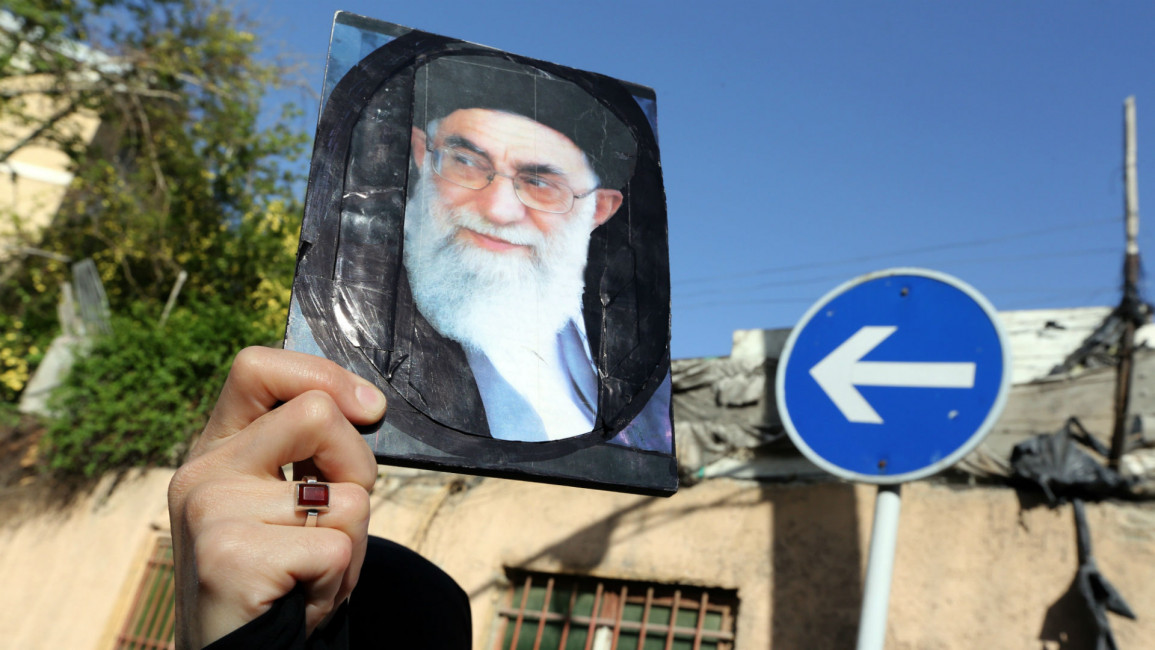
Making friends with Iran, and keeping old allies happy
The timing of Saudi Arabia's announcement that it will wind down its military operations in Yemen has given mixed signals to the United States.
Not long before King Salman Abdulaziz ended "Operation Decisive Storm" on Tuesday, he had announced the mobilisation of the kingdom's national guard to aid the Yemen campaign.
Many saw that mobilisation as an escalatory measure that was certain to exacerbate tensions with Iran.
Only the day before, Riyadh had scorned a call by Iran's foreign minister Javad Zarif for talks with Riyadh and the West to confront the runaway crisis in the region.
Iran put forward a four-point plan: an immediate ceasefire, the provision of humanitarian aid, talks between Yemen's warring parties, and the creation of an inclusive government.
But the Iranian proposal also asked for an end to Saudi Arabia's assault.
Zarif had reached a framework agreement with the West on Iran's nuclear programme earlier in the month. He appeared to tie that deal to broader regional cooperation.
In an opinion article published in the New York Times on Monday, April 20, the foreign minister wrote: "To seal the anticipated nuclear deal, more political will is required."
"It is time for the United States and its Western allies to make the choice between cooperation and confrontation, between negotiations and grandstanding, and between agreement and coercion."
Relations between Iran and Saudi Arabia have been thorny ever since the revolution in 1979. Rarely have they been as bad as they are today.
The countries have fought proxy wars in Syria, Lebanon and Iraq, but Yemen threatens to let tensions spiral out of control.
| It is Yemen that has the potential for the feud between Riyadh and Tehran to spiral out of control. |
A balancing act
While Iran's actual role in arming and financing the Houthis is yet to be determined, and may thus be exaggerated, the US administration appears to agree with Saudi Arabia's assumptions.
Gerald Feierstein, a state department official and former ambassador to Yemen, told a congressional hearing last week that Iran "provides financial support, weapons, training and intelligence to Houthis".
"We believe that Iran sees opportunities with the Houthis to expand its influence in Yemen and threaten Saudi and Gulf Arab interests."
For Tehran and its allies, including the Houthis, Riyadh's actions in Yemen are all part of a campaign to maintain the status quo against the Shia powers. They argue that this is no longer sustainable.
Tehran would point to Saudi Arabia's air raids as a much bigger case of "meddling in a neighbour's affairs".
For the Obama administration, the Yemen civil war is a headache that it can do without.
Since the beginning of the crisis, Washington called on both sides to talk instead of fight.
It has maintained that Hadi is the legitimately recognised leader of Yemen, and issued statements supportive of Saudi Arabia's actions.
| The Obama administration has been confronted with its failed policy in Yemen. |
Lost opportunities
But Washington also used allies like the Iraqi prime minister, Haidar al-Abadi, to sound concern, even disapproval, of the "excessiveness" of the air campaign in Yemen.
The Yemen's war has also highlighted US failures. Washington has invested huge amounts of time and resources in counterterrorism strategies to confront al-Qaeda in the Arabian Peninsula. All advances now appear to have been lost, leaving space for a more lethal brand of extremism to evolve in the country.
Groups with a similar ideology to the Islamic State group are now beginning to emerge from a lawless environment.
The Obama administration continues to regard AQAP as the greatest threat to the US despite the rise of IS: AQAP was involved in the Charlie Hebdo attacks in France, and foiled bomb plots against aircraft heading to the US.
By all accounts, the war has left Yemeni counterterrorism forces, trained and equipped by the US, either in disarray, or worse, joining forces against Hadi.
Other Houthi-allied groups also reportedly carry US weaponry.
Obama is set to receive the GCC leaders at Camp David next month to do more to assure them not just about the Iranian nuclear deal, but also to discuss other regional issues, including Yemen and Syria.
Washington will have to tread carefully so it doesn't alienate its Gulf allies, particularly Saudi Arabia, but it will also be equally careful to keep the door open for more engagement with Iran.
Opinions expressed in this article remain those of the author and do not necessarily reflect those of al-Araby al-Jadeed, its editorial board or staff.




